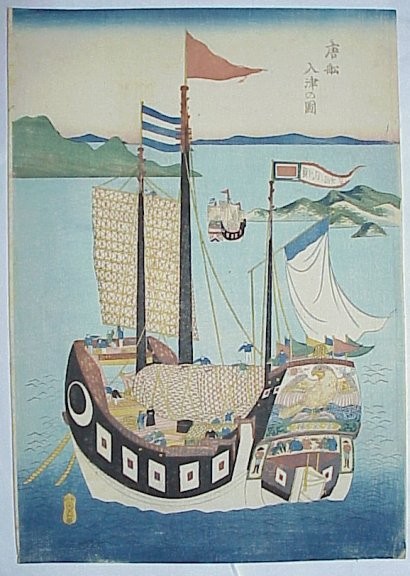Author Archives: Carl Kubler
Thursday, March 14: Jun Hee Lee, “‘We are the Glorious Coal Miners of Miike’: Araki Sakae the Laborer-Composer and His Postwar Movement Identities”
Jun Hee Lee
PhD Candidate in History, University of Chicago
“‘We are the Glorious Coal Miners of Miike’: Araki Sakae the Laborer-Composer and His Postwar Movement Identities”
Thursday, March 14, 4:00-5:30 PM
John Hope Franklin Room (SSR 224)
Discussant: Jessa Dahl, PhD Candidate in History, University of Chicago
Abstract: The Utagoe movement arose, by official account, in 1948 under the leadership of Seki Akiko (1899-1973), first chair of the prewar Proletarian Musician’s League and a musical authority among late-1940s Japanese Communist Party-line cultural circles. Utagoe quickly gained momentum in the mid-1950s as it called for establishing a new body of music that reflected the livelihood (seikatsu) of the ordinary Japanese, particularly the laborers. As Utagoe began aligning with labor and peace movements, one culturally conscious mechanic found his calling in Utagoe: Araki Sakae (1924-1962), a native of the coal mining region of Miike in northern Kyushu. Over the last decade of his life, Araki composed songs that were in line with contemporary Utagoe’s political and cultural worldview. In analyzing this much discussed figure in the Utagoe movement’s historical narrative, this dissertation chapter explores two historical developments surrounding the life and legacy of Araki Sakae: first, remembering of Araki Sakae as the “laborer-composer” (rōdōsha sakkyokuka) figure; second, Araki’s search for his identity since 1945 according to his own writings. By juxtaposing this dual development, this chapter demonstrates the amorphous yet continuously present notion of “movement” in Utagoe which is premised upon the notion of “struggle” (tatakai) on individual, collective, and historical levels. As I will continue to discuss in the chapters that follow, such “extra-musical” dimension of the Utagoe movement’s worldview, evinced by the continued celebration of Araki Sakae, has remained the centerpiece of the notion of “movement” in Utagoe.
Protected: Thursday, February 28: Yasser Nasser, “The Pedagogy of Asianism: The Fulian and Defending the Peace of Asia”
Thursday, February 28: Yasser Nasser, “The Pedagogy of Asianism: The Fulian and Defending the Peace of Asia”
Yasser Nasser
PhD Student in History, University of Chicago
“The Pedagogy of Asianism: The Fulian and Defending the Peace of Asia”
Thursday, February 28, 4:00-5:30 PM
John Hope Franklin Room (SSR 224)
Discussant: Niuniu Teo, PhD Student in History, University of Chicago
Protected: Thursday, February 14: William Marotti, “One Stop from Yoyogi: Shinjuku and the Politics of Violence and Ambiguity in Japan’s 1968”
Thursday, February 14: William Marotti, “One Stop from Yoyogi: Shinjuku and the Politics of Violence and Ambiguity in Japan’s 1968”
William Marotti
Associate Professor of History, UCLA
“One Stop from Yoyogi: Shinjuku and the Politics of Violence and Ambiguity in Japan’s 1968”
Thursday, February 14, 4:00-5:30 PM
John Hope Franklin Room (SSR 224)
Discussant: Jun Hee Lee, PhD Candidate in History, University of Chicago
Protected: Thursday, January 31: Alex Haskins, “Sovereignty as Counter-domination: Alertness, Dignity, and Political Reform in Sakuma Shozan’s Thought”
Thursday, January 31: Alex Haskins, “Sovereignty as Counter-domination: Alertness, Dignity, and Political Reform in Sakuma Shozan’s Thought”
Alex Haskins
PhD Candidate in Political Science, University of Chicago
“Sovereignty as Counter-domination: Alertness, Dignity, and Political Reform in Sakuma Shozan’s Thought”
Thursday, January 31, 4:00-5:30 PM
John Hope Franklin Room (SSR 224)
Discussant: Jessa Dahl, PhD Candidate in History, University of Chicago
Monday, January 28: Peidong Sun, “‘Fragrant Flowers’ and ‘Poisonous Weeds’: Censoring Personal Readings during the Cultural Revolution”
Peidong Sun
Associate Professor of History, Fudan University
“‘Fragrant Flowers’ and ‘Poisonous Weeds’: Censoring Personal Readings during the Cultural Revolution”
Monday, January 28, 5:00-7:00 PM
5:00-7:00 PM, CEAS 319
Co-sponsored with the Center for East Asian Studies
